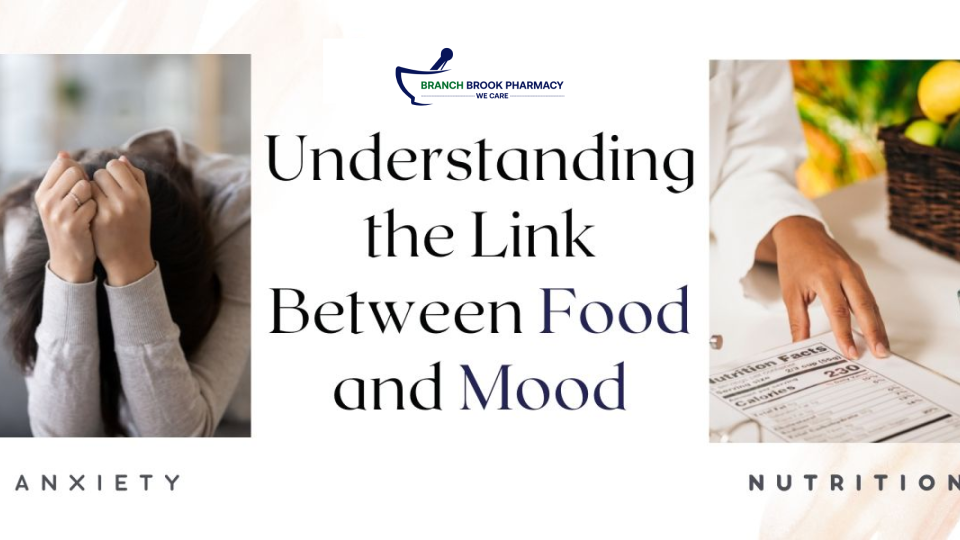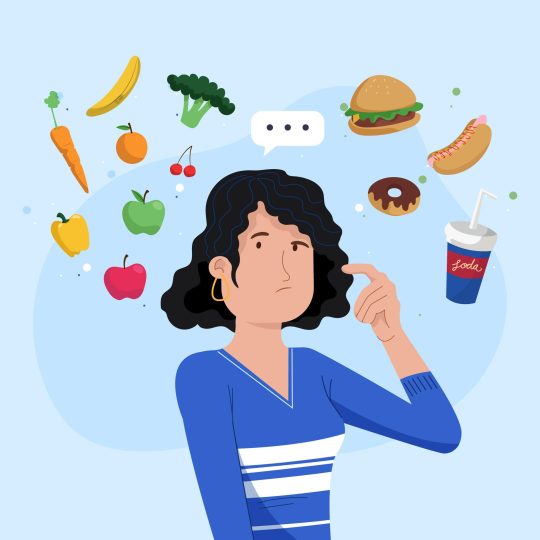
Anxiety and Nutrition
Welcome to our latest blog post on anxiety and nutrition! Have you ever noticed how certain foods can affect your mood? Maybe a cup of tea or a piece of chocolate helps calm your nerves, while junk food leaves you feeling lethargic and anxious. Well, the link between what we eat and how we feel is real, and it’s time to start paying attention. In this article, we’ll explore the fascinating connection between food and mood, including which nutrients can help alleviate anxiety symptoms and prevent future episodes. So grab a healthy snack (or maybe even some dark chocolate!) as we dive into this important topic together.
What Is Anxiety?
Anxiety is a normal emotion that everyone experiences at one time or another. It’s a feeling of uneasiness, worry, or fear. For some people, however, anxiety can be overwhelming and disabling. When this happens, it can interfere with work, school, and personal relationships.
There are many different types of anxiety disorders, including Generalized Anxiety Disorder (GAD), Panic Disorder, Obsessive-Compulsive Disorder (OCD), Social Anxiety Disorder, and Post-Traumatic Stress Disorder (PTSD). Symptoms of anxiety can include:
- Feeling restless, wound-up, or on-edge
- Being easily fatigued
- Having difficulty concentrating
- Feeling irritable
- Having muscle tension
- Difficulty falling asleep or staying asleep
- Sweating
- Nausea or upset stomach
Anxiety can also lead to panic attacks, which are sudden episodes of intense fear that may include a pounding heart, sweating, shaking, shortness of breath, chest pain, dizziness, and nausea. People who have panic disorder often live in fear of having another attack and avoid places where they’ve had previous attacks. This can make going to work, school, or running errands very difficult.
Anxiety disorders are the most common mental health condition in the United States. According to the National Institute of Mental Health (NIMH), about 18% of adults in the U.S. suffer from an anxiety disorder in
The Link Between Food and Mood

How Food Impacts Mood
Food plays a dual role in affecting mood: it has both short-term and long-term effects. In the short term, the type of food we consume can influence energy levels and alertness. For instance, a large, heavy meal might leave you feeling lethargic, while sugary snacks can provide a quick energy boost, often followed by a crash. In the long term, poor dietary habits—such as consuming processed foods and refined sugars—are linked to an increased risk of anxiety and depression. Conversely, a balanced diet rich in fresh fruits, vegetables, and whole foods can help improve mental health, highlighting the critical role of anxiety and nutrition.
Nutrients That Support Mental Health
Several key nutrients have been shown to positively affect mental health, particularly in managing anxiety and nutrition. Here’s a breakdown of the most impactful nutrients:
1. Omega-3 Fatty Acids
Omega-3 fatty acids are essential for brain function and emotional well-being. They help reduce inflammation and promote a sense of calmness and relaxation. Foods rich in omega-3s include salmon, flaxseeds, chia seeds, and walnuts. Incorporating these into your diet can significantly improve your mood and reduce anxiety symptoms.
2. Magnesium
Magnesium is involved in over 300 biochemical reactions in the body and plays a critical role in calming the nervous system. Found in dark leafy greens, nuts, seeds, fish, and whole grains, magnesium helps regulate stress hormones and supports relaxation.
3. Probiotics
Probiotics support gut health, which is closely linked to mental health through the gut-brain axis. A healthy gut microbiota has been shown to reduce symptoms of anxiety. Probiotic-rich foods include yogurt, kimchi, sauerkraut, and miso soup.
4. Vitamin D
Known as the “sunshine vitamin,” vitamin D helps regulate mood and reduces anxiety. Sun exposure and foods such as fortified cereals and fatty fish are excellent sources of vitamin D. Ensuring adequate levels of this nutrient is essential when addressing anxiety and nutrition.
5. Iron
Iron deficiency can contribute to fatigue, mood swings, and increased anxiety. Iron-rich foods such as lean meats, beans, spinach, and fortified cereals support better mental clarity and overall well-being.
Nutrients That Help Reduce Anxiety
Research continues to explore the relationship between anxiety and nutrition, identifying specific nutrients that can help alleviate anxiety:
- Omega-3 Fatty Acids: Reduce anxiety by improving brain chemistry.
- Magnesium: Promotes relaxation and reduces stress.
- Probiotics: Improves gut health, indirectly supporting mood stability.
- Vitamin D: Enhances mood regulation.
- Iron: Prevents fatigue and cognitive issues linked to anxiety.
Incorporating these nutrients into your diet is a vital strategy for managing anxiety and improving mental health.
Foods That Worsen Anxiety
Just as certain foods help reduce anxiety, others can exacerbate it. Recognizing these triggers is crucial in managing anxiety and nutrition effectively.
- Caffeine: As a stimulant, caffeine can increase jitteriness and anxiety. It’s found in coffee, tea, and energy drinks.
- Sugar: High sugar intake causes blood sugar fluctuations, leading to mood swings and heightened anxiety.
- Trans Fats: Found in processed foods, trans fats increase inflammation, which may worsen anxiety.
- Alcohol: While it may temporarily relax you, excessive alcohol can intensify anxiety symptoms over time.
- Processed Foods: Containing additives and preservatives, these foods can negatively impact mood.
Avoiding or minimizing these foods is an important part of developing an anxiety-friendly diet.
Eating Strategies to Reduce Anxiety
When considering the relationship between anxiety and nutrition, adopting healthy eating strategies can make a significant difference. Here are some practical tips:
1. Eat Regular Meals
Maintain steady blood sugar levels by eating balanced meals and snacks throughout the day. This helps reduce anxiety and improves focus.
2. Incorporate Protein
Protein supports cognitive function and mood stabilization. Include lean proteins like chicken, fish, beans, and tofu in your meals.
3. Prioritize Omega-3s
Add foods rich in omega-3 fatty acids, such as salmon and walnuts, to your diet. These nutrients have both anti-inflammatory and antidepressant properties.
4. Include Probiotics
Probiotic-rich foods like yogurt and sauerkraut can help maintain gut health, which is critical for managing anxiety.
5. Avoid Processed Foods
Limit sugary drinks and processed snacks, as they can trigger or worsen anxiety symptoms.
By adopting these eating strategies, you can build a dietary routine that supports both physical and mental health.
The Role of Healthcare Professionals
If you suspect your diet may be contributing to your anxiety, consulting a registered dietitian or healthcare professional can help. They can guide you in tailoring your diet to address anxiety and nutrition, ensuring you meet your body’s unique nutritional needs.
In A Nutshell
This blog highlights the critical connection between anxiety and nutrition, emphasizing how dietary choices directly impact mental health. By incorporating nutrient-rich foods like omega-3 fatty acids, magnesium, probiotics, vitamin D, and iron into your diet, you can manage anxiety more effectively. Conversely, avoiding triggers like caffeine, sugar, and processed foods is equally important. Developing healthy eating patterns can reduce stress, improve mood, and enhance overall well-being.
At BranchBrook Pharmacy, we are committed to helping you understand how nutrition affects mental health. With the right guidance, you can make positive dietary changes to support a happier, healthier life. Explore our services and resources to learn more about how we can help you manage your health through better nutrition!
Also Read : Understanding Silent Migraine: What You Need to Know – Branch Brook Pharmacy

